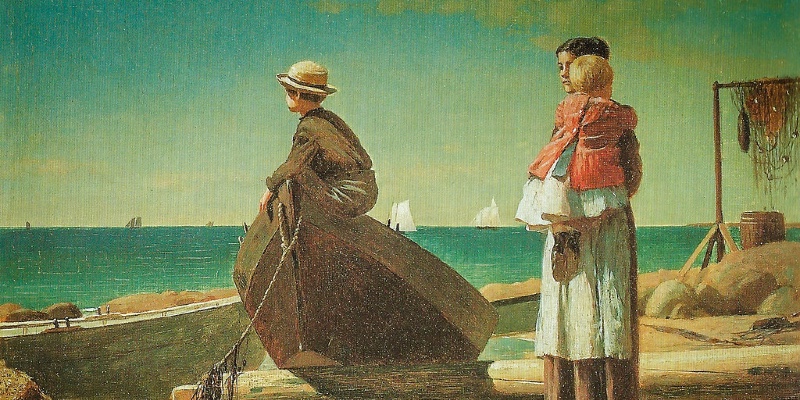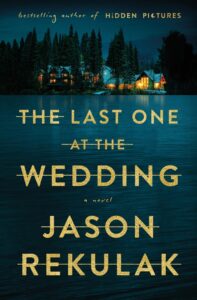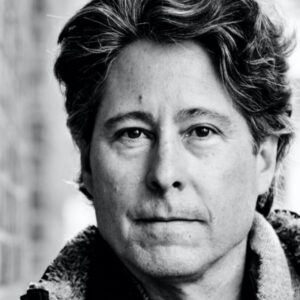Like a lot of writers, I’m always dreaming up hypothetical “what-if” scenarios—and sometimes I’ll run these situations past my wife, Julie, to ask how she would respond.
For example, I once asked what she’d do if I was on a plane that vanished at sea—like Tom Hanks in Cast Away. I asked how long she’d wait for my return before giving me up for dead and remarrying. (She promised to wait longer than Helen Hunt, but I think she was just humoring me.)
On another occasion, I asked how she’d react if our son committed a crime. Specifically, I wanted to know if she would turn him over to the police.
She answered with a shrug. “Depends on the crime. What did he do?”
“Something really horrible. Like murder.”
She thought for a moment. “How many murders?”
I couldn’t believe it! How many? She insisted the number mattered. She felt that if it was just one murder, then our son might have a reasonable explanation.
“But what if he didn’t? What if he was flat-out guilty?”
I kept pushing, but her answer didn’t change. She said it would be really hard to turn him over to the police, that she couldn’t imagine turning him over to the police. And I understood her point of view. I’m not sure I could turn him in, either.
The conversation got me thinking about parents and the lengths we’ll go to protect our children (and also our willingness to overlook bad behavior that’s happening right under our noses). The real world offers plenty of case studies. One of the main characters in Michael Finkel’s fabulous nonfiction book The Art Thief is a mother who turns a blind eye to the nearly $2 billion worth of stolen artwork on display in her attic (her son claims that he purchased all of the sculptures and paintings at yard sales).
And then of course there’s Sam Bankman-Fried, the cryptocurrency titan recently convinced of fleecing his customers for billions of dollars. A judge sentenced him to twenty-five years in prison, but all through the trial, Bankman-Fried’s parents maintained their son’s innocence. They’re law professors at Stanford, so I imagine they understand the specifics of the case better than the average person. But I’m not sure they can view their son’s case with the same clarity as an impartial judge and jury.
All these ideas and questions factor significantly into my new thriller The Last One at the Wedding. The story opens with a phone call: Frank hasn’t spoken to his estranged daughter Maggie in three years, but she rings out of the blue to announce she’s getting married, and better still, she wants her father to attend the wedding. Frank is overjoyed: Here at last is a chance to make amends with Maggie and start anew.
But in the days leading up to the wedding ceremony, Frank makes an alarming discovery about Maggie’s fiancé, Aidan Gardner. It turns out that Aidan’s previous girlfriend vanished under mysterious circumstances–and there are rumors Aidan may have been involved. Naturally, Aidan’s parents insist their son was innocent, that he’d never hurt anyone. They claim their son is incapable of violence. But Frank has spotted additional red flags about his future son-in-law, and he begins an investigation.
“So it’s a psychological thriller at a wedding,” one of my writer friends suggested. “But the narrator’s a dad? That’s unusual.”
Up until that conversation, I hadn’t realized I was writing anything out of the ordinary. A talking octopus is an unusual narrator. Or a private investigator with Tourette’s syndrome—sure, that’s an unusual narrator.
But a Dad? What’s so strange about a Dad?
Then I went home and browsed the psychological thrillers on my bookshelves, and I understood my friend’s point. The overwhelming majority of psychological thrillers told in the first person are narrated by women (usually young, single women, to allow for the occasional romantic subplot). Any time fathers do appear in these novels, they’re usually (1) deceitful sociopaths tormenting their wives and children, or (2) completely clueless.
This surprised me, because elsewhere in crime fiction, there’s no shortage of Dads fixing problems, solving mysteries, and taking down bad guys. The wonderful Joe Pickett novels by C.J. Box follow a Wyoming game warden who’s completely devoted to his wife and daughters (when he’s not stalking criminals and wildlife around Yellowstone). And S.A. Cosby’s Razorblade Tears offers a terrific variation on the usual “action dad” formula; his story concerns the grieving fathers of a murdered gay couple who go on a bloody quest to avenge their sons.
But in the quieter realm of the psychological thriller, Dad protagonists are scarcer than unicorns. My favorite example comes from a book that happens to be one of my favorites: Defending Jacob by William Landay. It’s the story of a district attorney who learns that his eighth grade son has been charged with murder—so yes, I guess you could argue that the novel is technically a legal thriller. But its most compelling scenes take place in domestic settings—in a middle school, in a suburban teenage bedrooms, and around the kitchen table. It’s a wonderful story of fathers and sons and families, artfully written and full of surprises, and probably the novel that inspired The Last One at the Wedding more than any other.
But surely there must be other examples of psychological thrillers with great Dad narrators, right? If you think I’ve missed a good one, please drop the title and author in the comments. I need something new to read!
***
–Featured image: Winslow Homer, Dad’s Coming!, 1873


















